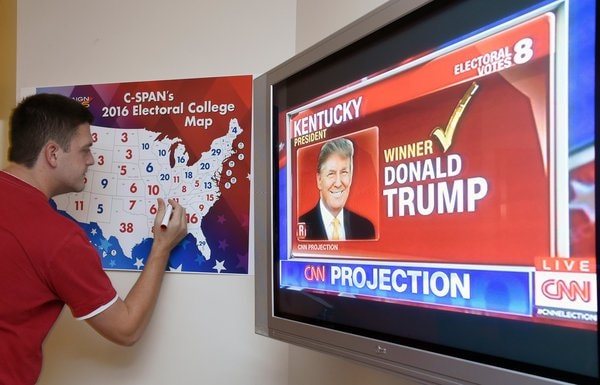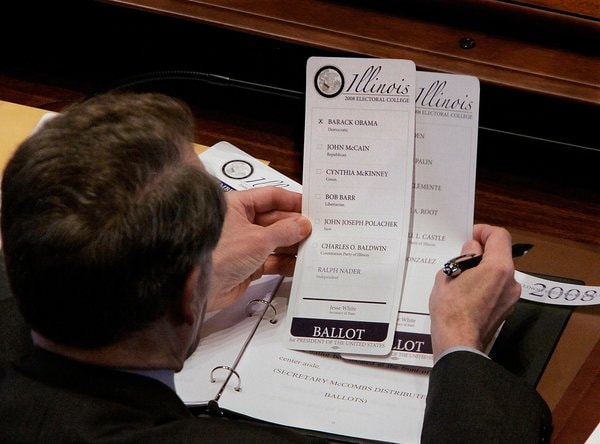What happened in the meeting of the US electors on December 19?
(Baonghean.vn) - December 19 according toIn the United States, 538 people will meet to determine who will be the next President of the United States.land of the free.
 |
| American voters write down their expected electoral votes as the popular vote results are announced. Photo: Getty. |
These meetings of the Electoral College, held in each state and the District of Columbia just six weeks after the November 8 election, have long been a mere formality.
However, the victory of President-elect Donald J. Trump, who lost the popular vote but is likely to win a majority of electoral votes, has once again brought the US Electoral College into focus. The conclusion by US intelligence agencies that Russia sought to interfere in the recent election to undermine Hillary Clinton’s campaign has only made the issue more of a flashpoint in recent days.
On December 16, President Obama described the Electoral College - which began as a compromise between those who wanted Congress to choose the US president and those who supported universal suffrage - as a "relic".
Who are the electors?
In short, electors are people chosen by state political parties to vote for president and vice president. Electors can be party leaders or elected officials, and sometimes they are people with personal ties to presidential candidates. For example, Bill Clinton is an elector from New York this year.
Each state has the same number of electors as its representatives and senators in Congress—538 in total, including three electors from the District of Columbia.
What will happen on December 19?
The electors meet in the states and cast two ballots: one for president and one for vice president.
They will then prepare what is called a “certificate of election,” and the results will then be sent or mailed to Congress and the national archives, where they will be entered into the official records of the United States.
 |
| Michael Madigan, an Illinois elector in the 2008 election, fills out his electoral vote. Photo: AP. |
DDo voters have to vote according to the popular will?
Not necessarily. At least one elector has so far said he will “fault” his party and not vote for Trump. There is nothing in the Constitution or federal law that obliges electors to vote a certain way. Some state laws force them to vote according to the popular vote in that state, while others are bound by less formal commitments to their party.
Under some state laws, so-called faithless electors who vote against their state’s results can be fined or even disqualified or replaced. No elector has ever been prosecuted for “flipping,” but in the past, electors have almost always voted according to the results of their states. The Supreme Court has not yet decided whether the pledges and the associated penalties are legal.
Who is that?electoral votes?
On January 6, 2017, at 1 p.m., members of the U.S. House of Representatives and the U.S. Senate will meet in the House of Representatives to count the votes. Vice President Joseph R. Biden Jr., as outgoing President of the Senate, is scheduled to preside over the count, during which ballots from each state will be opened and announced in alphabetical order.
Mr Biden will then declare the winner as the person with a majority of votes - at least 270 votes.
This it over?
Not necessarily. At that point, Mr. Biden would ask if anyone had any objections, and lawmakers could challenge individual electoral votes or the overall results. If an elector chooses to vote against the state’s results, that’s when lawmakers could recommend that vote be thrown out.
Objections must be in writing and signed by at least one member of the House of Representatives and one member of the Senate. If there is any objection, the Senate and the House of Representatives shall then immediately divide to consider and have two hours to decide whether they support the objection or not.
Both houses would then meet and announce their decision; if both sides agreed on the objection, the questionable vote would be thrown out. But to date, Congress has never faced an objection to an electoral vote.
Once any objections have been resolved, the result is considered final. And the next step is when the winner is sworn in on January 20.
Thu Giang
(According to NYT)
| RELATED NEWS |
|---|



